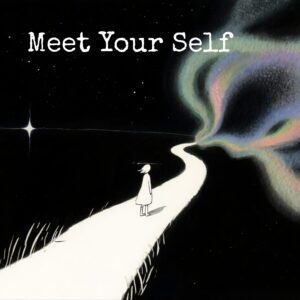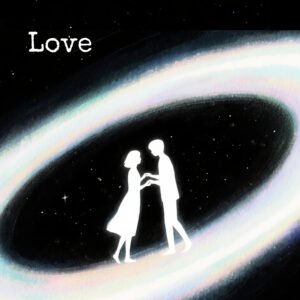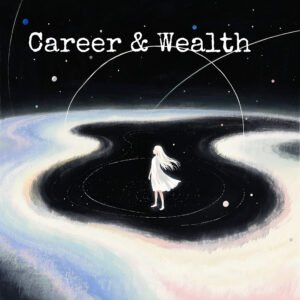Introduction
L'astrologie n'est pas un système de croyances unique, c'est un dialogue de 5 000 ans entre le ciel et l'humanité.
Des prêtres de Babylone scrutant le ciel à la recherche de présages, aux philosophes d'Alexandrie en quête d'harmonie cosmique, jusqu'aux astrologues modernes explorant la psyché, l'astrologie a toujours posé une seule question :
Comment le mouvement des cieux reflète-t-il le mouvement de l'âme ?
L'histoire de l'astrologie : un retour en force sur 5 000 ans
Partie 1 : Les premiers passionnés d'astronomie (vers 2000 av. J.-C.)
Partie 2 : La transformation grecque (vers 300 av. J.-C.)
Partie 3 : Les scientifiques et la grande rupture (vers 800-1600 apr. J.-C.)
Partie 4 : Le drame judiciaire qui a tout changé (1917)
Conclusion
L'histoire de l'astrologie n'est pas seulement l'histoire des étoiles, c'est aussi l'histoire de l'imagination humaine.
Des temples aux télescopes, des tablettes d'argile aux cartes informatiques, l'astrologie a évolué au rythme de notre quête de sens.
Autrefois code divin, aujourd'hui miroir psychologique, il continue de poser la question :
Comment trouver l'ordre et le sens dans le ciel au-dessus de nous et dans notre âme intérieure ?
L'astrologie perdure parce qu'elle évolue avec nous.
un pont entre la raison et l'émerveillement, la structure et le mystère, le temps et l'éternité.
Personnages clés de l'histoire de l'astrologie
| Ère / Contexte culturel | Chiffre | Période | Contributions majeures |
| Mésopotamie antique (env. 2000–500 av. J.-C.) | prêtres-astronomes babyloniens | — | Enregistrement des mouvements planétaires et des présages célestes (Enuma Anu Enlil) ; développement de l'astrologie des présages reliant la volonté divine aux événements du monde - le premier concept de « ce qui est en haut est comme ce qui est en bas ». |
| Traditions égyptiennes et perses | — | — | L'Égypte a apporté le mysticisme solaire et le système des décans ; la Perse a introduit les concepts de temps cyclique et de destin, qui ont tous deux façonné l'astrologie hellénistique ultérieure. |
| Période hellénistique (IIe siècle av. J.-C. – IIe siècle apr. J.-C.) | Vettius Valens | vers 120-175 apr. J.-C. | Auteur d'une anthologie ; il mettait l'accent sur le destin, les joies planétaires et l'astrologie expérimentale. |
| Dorothée de Sidon | Ier siècle de notre ère | Techniques de prédiction codifiées en vers ; fondamentales pour l'astrologie arabe médiévale. | |
| Claude Ptolémée | vers 100-170 apr. J.-C. | Tetrabiblos a systématisé l'astrologie scientifiquement ; il a expliqué l'influence planétaire par des causes naturelles ; il a établi un système de dignités fondamentales. | |
| Firmicus Maternus | vers 300-360 apr. J.-C. | Synthétiseur des traditions grecques et romaines ; met l'accent sur les dimensions spirituelles et fatalistes de l'astrologie. | |
| L'âge d'or arabe (VIIIe-XIIIe siècle) | Al-Kindi (Ya'qub ibn Ishaq al-Kindi) | vers 801–873 apr. J.-C. | Il a intégré la philosophie aristotélicienne à l'astrologie et a discuté du mécanisme naturel de l'influence céleste. |
| Mashallah ibn Athari | vers 740–815 apr. J.-C. | Pionnier de l'astrologie horaire ; il a dressé le thème astral fondateur de Bagdad. | |
| Abou Ma'shar (Albumasar) | vers 787-886 apr. J.-C. | Théoricien très influent des cycles planétaires et des ères du monde ; ses œuvres ont façonné l'Europe médiévale. | |
| Al-Biruni | vers 973-1050 apr. J.-C. | Spécialiste de l'astronomie et de la géographie ; il privilégiait l'observation empirique et la précision mathématique. | |
| L'Europe médiévale (XIIe-XVe siècle) | Thomas d'Aquin | 1225–1274 ap. J.-C. | Théologien ayant concilié l'astrologie et le libre arbitre : « Les astres inclinent, ils ne contraignent pas. » |
| Renaissance (XVe-XVIe siècle) | Marsile Ficin | 1433–1499 apr. J.-C. | Philosophe néoplatonicien ; il a uni l'astrologie à la pensée hermétique et médicale ; il considérait l'astrologue comme un « prêtre du cosmos ». |
| Tycho Brahé | 1546–1601 ap. J.-C. | L'association d'observations astronomiques précises et d'interprétations astrologiques. | |
| Johannes Kepler | 1571–1630 ap. J.-C. | Théorie des aspects réformée ; explication de l'harmonie planétaire par la géométrie et les proportions musicales. | |
| Galilée | 1564–1642 ap. J.-C. | Il pratiqua l'astrologie au début de sa carrière ; cela symbolisait la scission ultérieure entre l'astronomie et l'astrologie. | |
| Renaissance moderne (XIXe-XXe siècle) | Alan Leo | 1860–1917 ap. J.-C. | Père de l'astrologie moderne ; il mettait l'accent sur l'analyse du caractère et le développement spirituel ; influence théosophique majeure. |
| Carl Gustav Jung | 1875–1961 ap. J.-C. | Elle a introduit les concepts de synchronicité et d'archétypes et a redéfini l'astrologie comme une psychologie symbolique. | |
| Dane Rudhyar | 1895–1985 ap. J.-C. | Il a fondé l'astrologie humaniste ; il considérait le thème astral comme un mandala de réalisation de soi (L'astrologie de la personnalité). | |
| Liz Greene | 1946– | Astrologue jungien ; a exploré la dynamique de l’« ombre » planétaire (Saturne : un nouveau regard sur un vieux démon). | |
| Howard Sasportas | 1948–1992 | Elle a cofondé le Centre d'astrologie psychologique avec Greene ; elle mettait l'accent sur les maisons et la croissance. | |
| Intégration contemporaine (XXe-XXIe siècles) | Jeffrey Wolf Green | 1946–2016 | Créateur de l'astrologie évolutionnaire ; il interprétait les cartes comme des représentations de l'évolution de l'âme. |
| Richard Tarnas | 1950– | Philosophe et auteur de Cosmos et Psyché ; a développé une astrologie archétypale reliant les cycles planétaires à l'histoire culturelle. |



